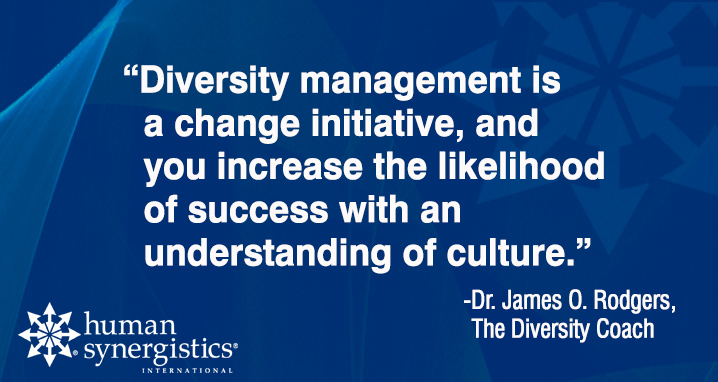The frame to understand culture is not engagement, diversity scorecards, workplace satisfaction, or other surface measures. These climate measures are visible manifestations of the culture. They may be useful but they do not provide the clarity necessary to understand “real” culture attributes like shared beliefs, assumptions, and behavioral norms along with how they play out across different subcultures (race, gender, ability, age, sexual orientation, etc.).

Positively impacting society on a global scale through culture awareness, education and action.
Despite the tragic incident on Southwest Airlines’ Flight 1380 on April 17, 2018, the culture of the Best Loved Airline ensured that the accident did not tarnish its reputation. The 1380 flight crew, in an interview on CBS News, attributed their success in safely landing the plane to their shared values. Although the crew didn’t mention a specific core value, Southwest’s Servants Heart was evident throughout all the actions taken after the accident, from Captain Tammie Jo Shults walking the aisle and speaking to every passenger once the plane was safely landed to the heartfelt message from CEO Gary Kelly.
Organizational culture is created through behaviors that grow into norms that influence how we behave at work. Therefore, culture change will occur when leaders begin to consistently exhibit new or different behaviors, setting the example for others to follow. Culture is stronger than any single leader, and once leaders start rowing together they become a powerful force.
Organizational culture and safety performance are inextricably linked. In order to improve safety performance, the organizational culture must be assessed and then employees engaged in improvement efforts.
An ability to pivot held some companies together, while thousands of others have shuttered. As the virus lingers, its economic wake will have an impact on corporate culture for years to come. How will things change—and by how much? What must leaders do now and in the months and years to come to best adapt?
Everything we knew about the benefits of high trust in the past has been amplified. Often, it takes a crisis to remind us what happens when trust is ignored or taken for granted.
Now that organizations have moved to a remote environment, developing a successful virtual team is critical to maintain productivity. Communication, collaboration, and negotiation are all skills that help successful teams make key decisions that lead to organizational effectiveness.
Taking the lead to create a more Constructive culture through your behavior, decisions, and interactions will not only help to breed talent, it will also help your organization to be more effective overall.
In change leadership we talk about “organizational readiness” to prepare employees to embrace change. Rarely do we speak of “leadership readiness.” Yet, year after year, the lack of sponsorship is the number one cause of change failing to meet its objectives. Perhaps it’s time to talk about “leadership readiness.”
Through the power of constructive conflict, an organizational culture of engaged, passionate, purposeful, loyal and connected employees can be sustained in ways that are measurable in profits and immeasurable in quality of contribution to the greater whole.
This is a fascinating story of “small-town manufacturing meets culture and transformational change.” You will likely find these insights useful in your culture work.
Positively shifting an organization’s culture should not be done with a quick fix. There is no replacement for understanding and educating the people in the human system to lead, navigate, and operate well in the face of change. Leaders must become champions of change to guarantee the organization’s alignment.
Regardless of what’s driving this strong and impermeable sense of We, if we want a more constructive workplace culture, we next need to align these separate departments as a We. With a broader sense of We, we create a more constructive culture in which we can all contribute more, make a greater impact — and maybe even make the world a better place.
Many of us have difficulty solidifying ideas like trust-building, but when you take the idea, break it down into observable behaviors and business results, you can reverse-engineer any trust-buster and work on the skills and competencies to dramatically increase trust, drive growth, and reduce costly mistakes.
The advancement of the Internet over the past two decades has taught us that we must run our organizations differently for our businesses to thrive, and perhaps even survive.














